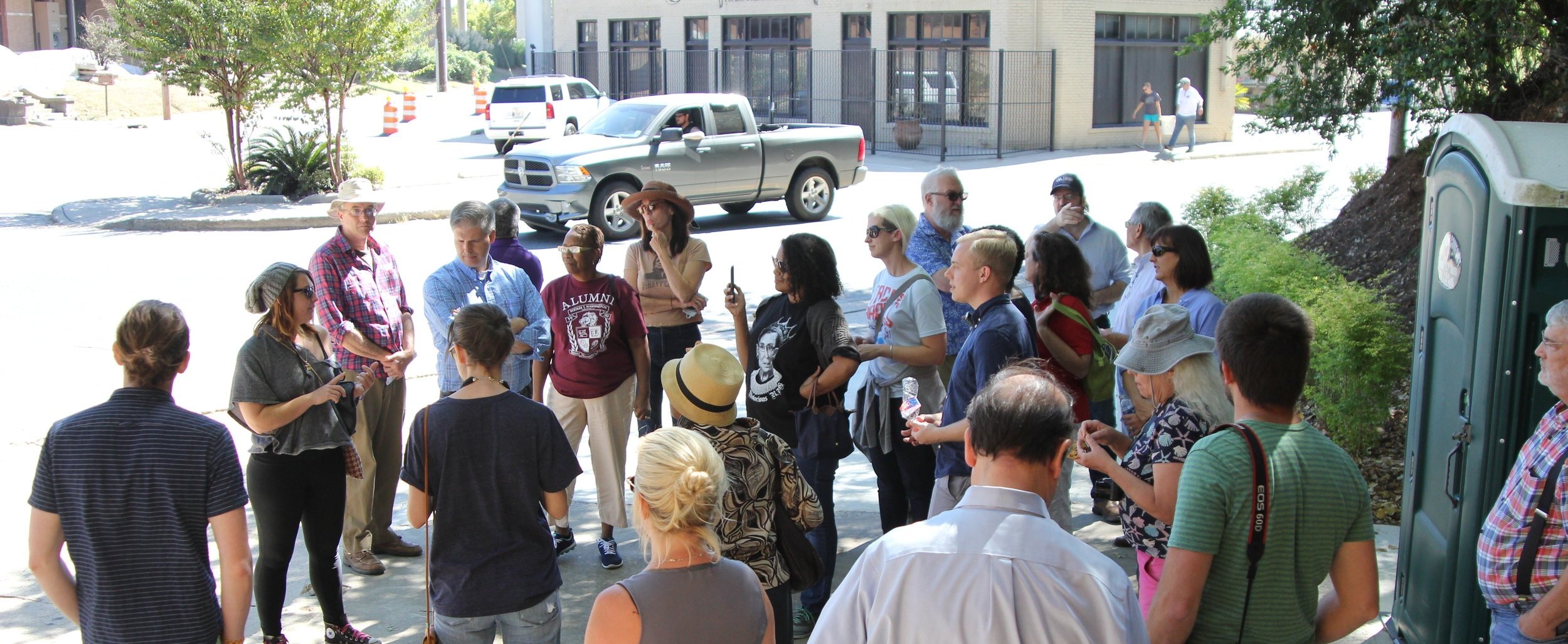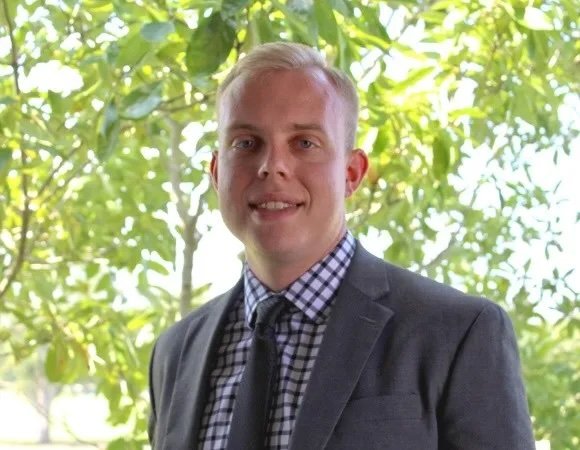
Since 2016, we have been sharing ideas for how to make our city grow.
Our mission.
Create a stronger and more resilient Shreveport by growing a culture of engagement and trust between residents, businesses, and government.
Why we believe ReForm is needed.
Since its founding in 1836, Shreveport's built environment has been formed by a variety of economic and social forces. Built environments are the physical structures — buildings, roads, common spaces, and public services — that provide the foundation on which our city's business and social interactions stand. The built environment is in need of “ReForming” to meet the needs needs of a 21st century economy and to create a fiscally sustainable and prosperous city.
ReForm Shreveport exists to bring people together in conversation and action to find and implement solutions to improve Shreveport's built environment. We do this by instigating dialogue and providing real-world demonstrations in the community to illustrate the methods of meaningful communication between all stakeholders of land use (everybody). To accomplish this, we take inspiration from leading thinkers and communities regarding urban planning and community development, and apply those concepts to find the best way forward for Shreveport.
The core tenets of ReForm Shreveport
We believe a strong city must be built to last — not just for a few years, but for generations. That means making decisions that are fiscally sound, grounded in common sense, and tested by time. These four principles guide everything we do:
Incremental Development
We don't have all the answers today, and tomorrow will bring new challenges. That’s why one of ReForm’s core beliefs is the importance of building a culture — in government, business, and community — that values learning by doing. Change doesn’t happen all at once. It happens step by step, by testing ideas at a small scale, learning from what works, and improving as we go.
This means trying new approaches, abandoning old ones that no longer serve us, and being willing to borrow or adapt successful ideas from other places. Innovation doesn’t require perfection — it requires movement, experimentation, and the humility to adjust.
Self-Correcting Processes
A city that can’t adjust can’t survive. In a healthy system, city departments, regulatory bodies, and staff are empowered to make timely, reasonable decisions. That includes saying “yes” when a solution is obvious, instead of letting bureaucracy stand in the way of progress.
Our goal is to create a government culture that allows for smart, calculated risks — whether in zoning, permitting, code enforcement, or infrastructure upgrades. We need systems that learn and evolve, not ones that stall and delay. A city that wants to be business-friendly and citizen-focused has to give its people the tools and authority to fix what’s broken — fast.
Stakeholder Engagement
Without people, there is no city. A functioning democracy depends on the active participation of residents — not just at the ballot box, but in everyday decisions about how our city grows and functions.
ReForm is committed to making public engagement real, not symbolic. That means building clear channels for residents, businesses, and neighborhood leaders to speak directly to decision-makers — and to be heard. We’re doing this now through the Kings Highway Revitalization Project, where neighbors are helping shape the future of a shared public space. But this approach applies to any issue that affects the community — from public spaces to policy.
Data-Driven Decisionmaking
Feelings and gut instincts have their place. But when it comes to how we spend money, shape our neighborhoods, or invest in infrastructure, we need facts. Strong decisions rely on solid data — and that data must be collected, shared, and used effectively.
ReForm advocates for transparent, timely access to information that helps guide public investments. That includes everything from how we repair streets and sidewalks to how we manage land use and city-owned property. When data is ignored, misused, or withheld, we all lose. When it’s used wisely, we build a city that works better for everyone.
Meet the Team
Tim Wright
Founder, President
Tim is a civil engineer and downtown enthusiast, passionate about connecting people who see Shreveport’s potential. He enjoys a good bike ride, cocktail, coffee, or conversation.
Moving from Dallas just a few short years ago, he was pleasantly surprised to enjoy every minute of the smaller city and the tight connections running through the people. He became involved through writing and exploring and sharing ideas about what makes a city great. Re-Form was born out of what he saw as the key issue defining Shreveport: finding areas of our underpopulated city that needed to be invested in and re-formed to help address today’s challenges. It’s exciting to him to hear from national speakers about what works for cities and learn how to apply them to Shreveport; educating local leaders and leaders in the community on how to move forward. However, Tim sees educating Shreveport’s leaders as only one piece of the puzzle, the other is getting the citizenry involved in small projects that make their block of the community better. If Shreveport’s leaders can be in tune with the citizenry, and the citizens can in turn trust local leaders, then the city’s trajectory can only be pointed upwards.
LeVette Fuller
Founding Member, Board Secretary
LeVette is a teen services librarian. She writes about civic engagement and culture for Heliopolis and Shreveport Magazine, and believes that knowledgeable, engaged citizens are pivotal to shifting a community toward vibrancy and away from the status quo. LeVette volunteers for several community service and arts organizations, and thinks land use policy is a fun topic to bring up at parties.
Luke Lee
Founding Member
Luke Lee is a multi-disciplined designer, maker, and business owner who works with his clients to improve the local economy and health of the community through design thinking and action. Luke, his wife Britney, and son Bridger live in the Highland Neighborhood of Shreveport and have been active in improving the neighborhood and connecting neighbors through the creation of and involvement with many organizations in the neighborhood.
Luke is a Shreveport native and has become dedicated to making the city a better place to live while becoming a leader in innovative practices.
Chris Lyon
Founding Member, Board Treasurer
Chris is a filmmaker and community advocate who has called Shreveport home for over 25 years. He is also a program director at the Prize Foundation, an organization that creates unconventional economic development programs which incentivizes Creative Entrepreneurship in Shreveport and Louisiana more broadly. Chris primarily focuses his energy improving the cultural and built environments in the core of Shreveport — particularly downtown where he resides.
He has produced several documentary films, the docuseries Shape of Shreveport, which featured insights into Shreveport’s history, the Rational Middle which creates videos on difficult subjects such as energy, environment, immigration and other political topics to find common ground on contentious challenges facing the United States.
Lyon previously helmed the local Heliopolis magazine (2014-2018) and is also a graphic artist and creates a variety of digital and physical products to further the understanding of ReForm Shreveport’s core principles.








